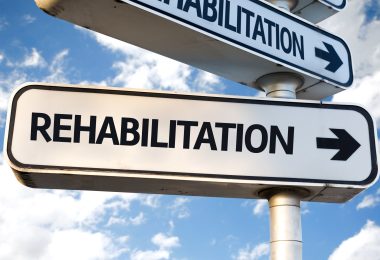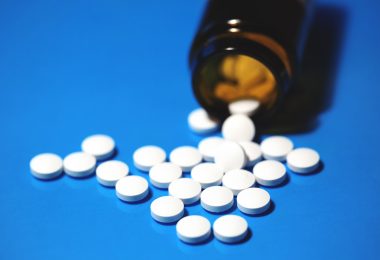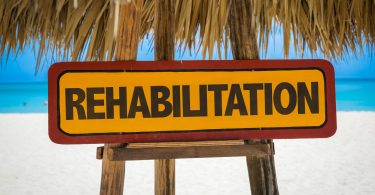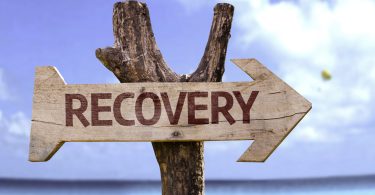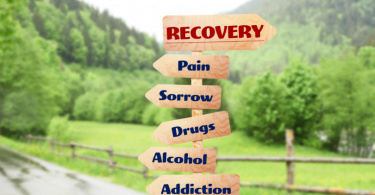Substance Abuse Treatment
Find Detox Centers
Some withdrawal symptoms can be harmless but uncomfortable while others can be agonizing and often fatal. Detox centers greatly reduce the rate of mortality during a withdrawal process and create a more comfortable detoxification experience.
A medically supervised detox is necessary for some addictions while other substances are safe to withdraw from in a social setting. Detoxing alone isn’t recommended for any addiction, as it’s often difficult for the addicted person to recognize when withdrawal symptoms become dangerous. Insomnia, nausea and vomiting, agitation, anxiety, changes in appetite and gastrointestinal upset may seem harmless initially, but these and other serious symptoms such as depression, pain, disorientation, intense drug cravings and seizures shouldn’t be endured alone.
Addictions to alcohol, opioids, benzodiazepines and barbiturates usually require a careful detox supervised by a medical professional, 24 hours a day, every day, often with the assistance of pharmaceutical medications to minimize health risks and maximize comfort during the process.
The first stage of detox is a comprehensive examination of the patient. Physical and psychological health is assessed and a treatment and recovery strategy is created. Many of our patients find that they’re more motivated to participate in addiction treatment as they complete the detox stage of recovery.
- Hospital Inpatient Addiction Detoxification
- Outpatient Detoxification Facility
- Residential Addiction Detoxification Facility
Find Inpatient Rehab Centers
An inpatient treatment center is ideal for an individual battling a severe addiction. Living inside the facility essentially ‘unplugs’ the patient from his or her old friends, habits and haunts while treatment increases overall health and reorganizes brain function to produce healthier thought patterns. At the completion of treatment, the patient and his or her therapist construct an aftercare plan to safeguard the sobriety recently achieved.
Many inpatient treatment centers offer detox before treatment. During treatment, the patient sleeps, eats and participates in immersive therapy at the facility. Treatment can be long or short-term programs offering an array of therapies such as individual and group therapy, family therapy, anger management, life coaching, equine and expressive therapy and more.
Patients rebuild life skills such as responsibility, accountability, acceptable social interactions, healthy eating strategies, strength training or other physical activity and compassion and empathy for others. Patients are never in it alone: the support of others on the same journey can be relied upon at all stages of treatment and recovery.
A licensed, reputable inpatient treatment facility is located near you. Contact us today and we’ll help you take the first step in getting your life back on track. It’s not too late.
- Long-term Residential Addiction Treatment Facility
- Residential Addiction Treatment Facility
- Short-term Residential Addiction Treatment Facility
Mental Health & Hospitals
Addiction is a mental health disease that is often caused by an underlying psychological illness which may not have been diagnosed by the time an individual recognized his or her addiction. It’s quite common for someone who suffers from addiction to also be suffering a coinciding mental health disorder such as depression, anxiety or bipolar disorder.
In fact, about 50 percent of people diagnosed with severe psychological disorders are affected by an addiction. Roughly 37 percent of alcoholics and 53 percent of people who abused drugs have at least one severe mental illness as well. Of all people with a diagnosed psychological disorder, 29 percent abuse substances, regardless of severity.
The good news is that there’s hope. In addition to addiction treatment facilities, mental health facilities and hospitals treat co-occurring disorders, which is a diagnosis of both a mental health disorder and a substance use disorder. Experts agree that co-occurring disorders should be treated simultaneously and your options for this comprehensive treatment can be found below.
Our directory includes licensed and reputable hospitals and other facilities equipped to effectively treat co-occurring disorders. We’re here to help you choose how you start your journey. Give us a call; our compassionate staff is committed to helping you get the right start.
- Addiction Psychiatric Hospital
- General Addiction Hospital (including VA hospital)
- Hospital Inpatient Addiction Treatment
- Hospital Inpatient Addiction Treatment Facility
Outpatient Rehab Centers
As a treatment program comes to an end, the patient must consider the best living environment for a new drug and alcohol-free lifestyle.
The format for an intensive outpatient program (IOP) can vary between a sober living home and an intense schedule of meetings and therapy sessions while the graduate lives at home. If patients are still strengthening their hold on their convictions for a substance-free lifestyle, an IOP is most suitable.
Outpatient treatment plays an ongoing role in lifelong sobriety. For many treatment program graduates, outpatient rehab is the backbone of their continued sobriety. Outpatient programs require a small commitment in exchange for the persistent renewal of one’s healthy, personal principles.
Many of our patients leave the treatment program with an abundance of support at home and compelling motivations to maintain a healthy lifestyle. Those patients may benefit most from weekly support meetings with peers such as Alcoholics Anonymous or any of the many other peer-based support groups available.
Regularly participating in routine, peer-based meetings provides an opportunity to connect with others who have similar interests and philosophies. These meetings are widely available to communities, allowing enough flexibility for work and school in their accessibility. In addition, many of them are offered for free.
- Intensive Outpatient Addiction Treatment
- Outpatient Addiction Treatment Facility
- Computerized Addiction Treatment
- Outpatient Day Treatment or Partial Hospitalization
- Outpatient Methadone/Buprenorphine or Naltrexone
- Partial Hospitalization/Day Addiction Treatment Facility
- Regular Outpatient Addiction Treatment
Paying for Treatment
The majority of treatment centers accept multiple forms of payment, including cash, check, money order and debit and credit card. In addition, many facilities take care to provide a flexible set of additional options and will assist patients to help secure payment, when possible.
Many private medical insurance policies include coverage for substance abuse treatment. Our facilities often employ knowledgeable staff that can assist patients in accessing the appropriate benefits from one’s policy. If the addicted individual isn’t covered by a private healthcare policy, facility staff members may be able to assist him or her with applications for government healthcare policies, like Medicare or Medicaid, that includes coverage for addiction treatment.
In the case that a healthcare insurance policy is unavailable to patients as a payment option, there are many other options to explore. Every individual has a unique set of circumstances to work with; our facilities are committed to helping our patients get the care they need.
While paying for treatment can seem like a daunting task at first, continuing addictive behaviors costs things dearer than money: relationships, personal morals, social and professional status and your overall health.
It’s time to stop the toxic cycle and get your life back on track.




